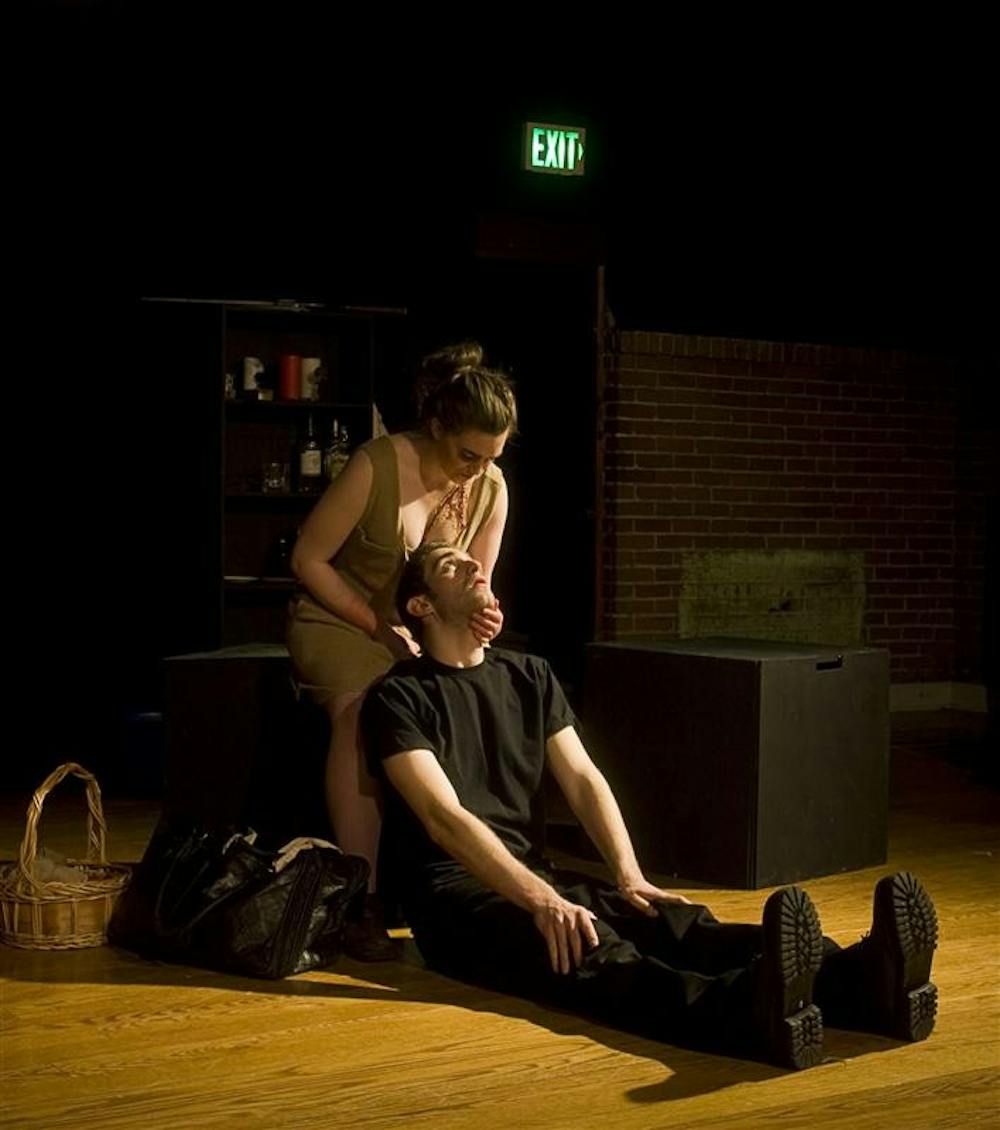Good versus evil and the distinction of class were reoccurring themes conveyed by the cast of “Fucking A.”
There was not an empty seat in the John Waldron Arts Center on opening night. The show, written by Suzan-Lori Parks, the first black Pulitzer Prize winner for drama, and originally produced by New York’s Public Theatre, was a riff on Nathaniel Hawthorne’s “The Scarlet Letter.”
In the opening scene, the main character, Hester, enters with a bloody “A” branded above her left breast, representing her as an abortionist while an old spiritual song plays.
The set consisted of large cubical black boxes with few other props.
“I like what they did with the boxes,” senior Kate Catherall said. “I’m impressed with how the music was incorporated into the play.”
Hester, the main character, was an abortionist saving money to buy her son’s freedom.
As a child, her son Monster stole food from First Lady, the mayor’s wife, and was incarcerated.
“Freedom ain’t free at all, freedom a heavy wage,” Canary Mary, Hester’s best friend, said.
The climax of the play occurs when Hester is told her son died while on a picnic with another prisoner, who she believes is her son.
Canary Mary tells Hester she is in contact with a man with an ugly scar – a scar that looks like one that resulted from Hester biting Monster and herself on the same arm as a way to recognize him in the future. Hester doesn’t believe the man Canary Mary knows is her son because the man has committed evil acts, including pedophilia, rape, murder and sodomy.
“It is hard to be good when surrounded by so many that are bad,” Hester said.
The theme of class is introduced early when the Mayor openly cheats with Canary Mary because of his wife’s inability to have children. His mistress is poor, but his rich wife can’t give him what he desires most: a child.
“The play definitely conveyed the class message,” Charles Railsback, undergraduate adviser of Department of Theatre and Drama, said.
First Lady has an affair with Monster and becomes pregnant, but everyone thinks the child is the mayor’s. Hester kills First Lady’s unborn child as the ultimate revenge for sending her son to jail when he was young.
Hester and her son are reunited at the end of the play when Monster runs into Hester’s house while being pursued by the Hunters. Monster knows the Hunters are going to capture, torture and kill him, but he would rather be killed by his mother than by the hand of the Hunters.
“Well, I think the message in Suzan-Lori Parks’ plays is unavoidable,” Edris Cooper-Anifowoshe, theater and drama assistant professor, said. “They did very well and it is not an easy style to get.”
With the First Lady’s inability to have children, Hester trying to buy her son’s freedom, First Lady becoming pregnant, Hester killing First Lady’s unborn child and then killing her own son, the play exemplifies the full circle of life. Though humorous, the message of class and good versus evil was what had audience members talking.
“It was certainly a joy to see the play come to life,” sophomore Matt Herndon said.
Spin on ‘Scarlet Letter’ has message of good, evil

Get stories like this in your inbox
Subscribe





